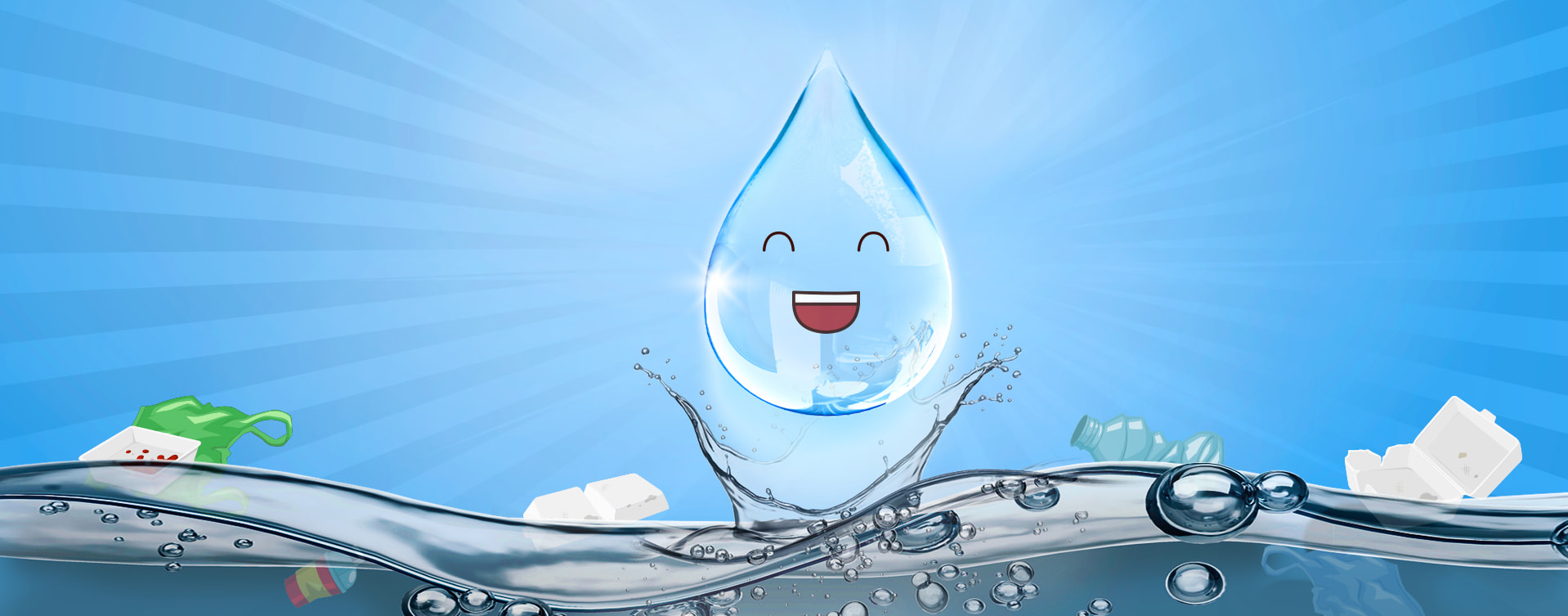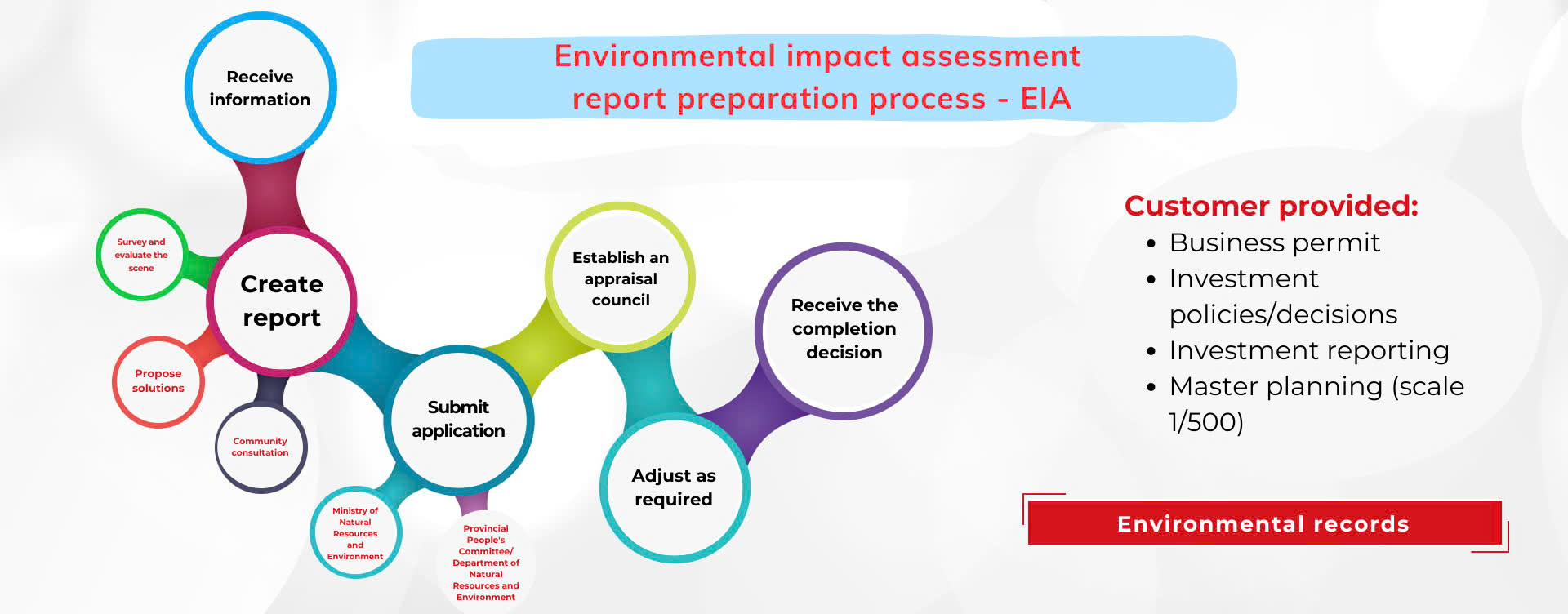WASTEWATER TREATMENT
WASTEWATER TREATMENT
Every activity of each individual and organization generates a certain amount of wastewater. This amount of wastewater needs to be collected and treated before being discharged into the receiving source. So what are the current wastewater treatment technologies and how will investing in building a wastewater treatment system be? Let’s find out with WeMe!
How does WeMe treat wastewater?
WeMe’s service chain
For a company, factory, business, etc. to be able to operate, the wastewater treatment process is indispensable. Building a wastewater treatment system requires many steps and complex processes. Below is WeMe’s implementation process:
Pre-construction phase
In this phase, to be granted a construction permit for the project. The investor needs to complete a number of legal documents to be approved by the competent authority. WeMe has a team of consultants specializing in environmental profile preparation, which will be a valuable companion for customers in this field. At the same time, we will consult on the design of wastewater treatment systems for investors to submit for approval. Here, there will be the following steps:
- Survey the nature and flow of input wastewater
- Survey the construction site
- Propose treatment technology
- Develop drawings and technological diagrams
- Develop construction plans
Construction phase
From the above design plan, WeMe always has a team to construct and install the system as per the design.
Operation phase
After the system is completed and put into operation, WeMe will report the results to the environmental agency and carry out some legal documents according to regulations. WeMe also supports initial system operation training for investors; supports warranty and maintenance when there are problems; consulting upon request.
Industries that need wastewater treatment
Human life is getting better, the economy is developing, many new industries are emerging, leading to the problem of waste generation during the operation of industries. The following are some types of wastewater with large amounts that need attention and treatment:
- Domestic wastewater,
- Industrial wastewater,
- Medical wastewater,
- Livestock wastewater,
- Aquaculture wastewater,
…
Depending on the nature and flow, WeMe will propose a wastewater treatment system with different capacities and technologies. The final result is still the output efficiency and benefits for the business.
Current popular wastewater treatment technologies
Each type of wastewater will have its own appropriate treatment technology. However, there are 5 commonly used technologies today, including:
MBBR technology
MBBR technology is an artificial treatment process that uses materials as a carrier for microorganisms to adhere to for growth and development. This technology is a combination of traditional aerotank and aerobic biological filtration. This is a new technology in the field of wastewater treatment because it saves space and has high treatment efficiency.
The carrier material must have a density lighter than water, ensuring suspended conditions. These carriers are always moving continuously throughout the tank volume thanks to air blowers and agitators. The density of microorganisms increases, the treatment efficiency increases.
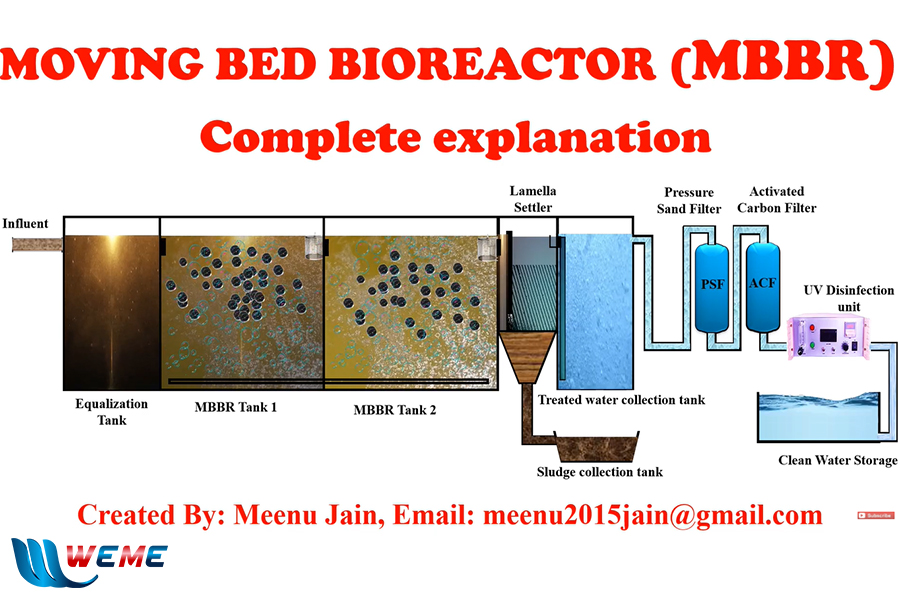
AAO technology
AAO technology is a continuous biological treatment process that uses anaerobic, anaerobic and aerobic microorganisms to decompose pollutants in wastewater. Under the effect of decomposing pollutants by microorganisms, pollutants are treated before being discharged into the environment.
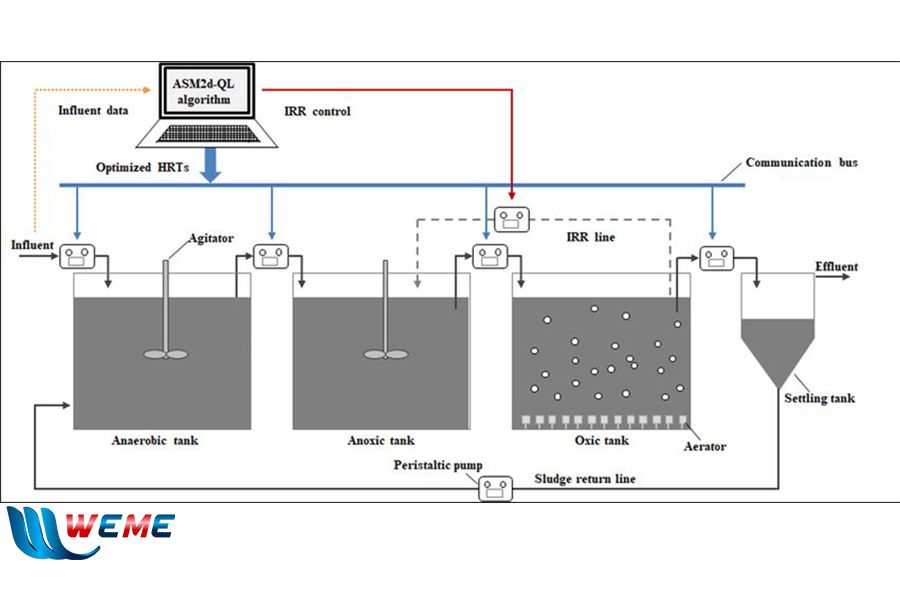
Physico-chemical wastewater treatment technology
Wastewater treatment by physico-chemical technology is based on chemical reactions, physical and chemical processes that occur between pollutants and added chemicals. The reactions that occur can be oxidation-reduction reactions, precipitation reactions or toxic decomposition reactions.
There are chemical methods such as oxidation, neutralization and coagulation (also known as coagulation). Usually, neutralization is accompanied by coagulation.
MBR technology
MBR membrane filtration technology is a combination of microorganisms in suspended activated sludge tanks and hollow fiber membrane filtration technology in wastewater treatment. The sludge content in the biological tank will be retained through the microfiltration mechanism of the membrane, thanks to its small size (µm), so the wastewater after leaving the membrane has very good quality.
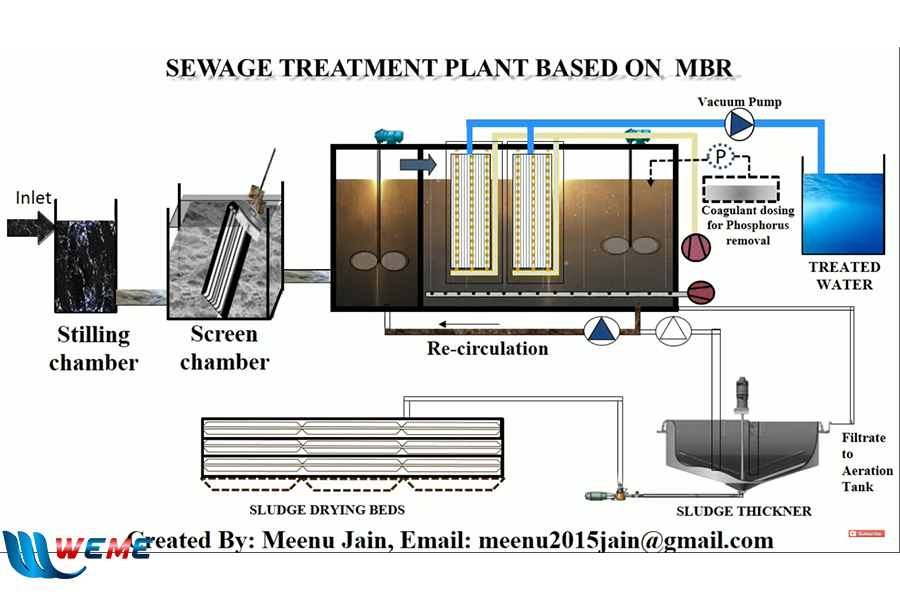
SBR Technology
SBR (Sequencing Batch Reactor) is a biological wastewater treatment tank using a continuous batch reaction process. This is a type of Aerotank.
SBR tanks operate in a cyclical cycle with 5 phases including: Filling, Aeration, Sedimentation, Drainage and Rest. SBR systems require cyclical operation to control the treatment process. Each alternating step will be carefully selected based on professional knowledge of biological reactions.
What is wastewater treatment?
Wastewater treatment is the process of removing pollutants from wastewater, turning wastewater into clean water at an acceptable level. Currently, wastewater treatment is a top priority issue and is of interest to everyone. However, because the treatment process is quite complicated and costly, some places often “circumvent the law” and discharge directly into the environment.
To limit this illegal discharge, our country has issued a number of regulations and corresponding fines for the above issue. At the same time, technology is increasingly developing, so the treatment process is also applied with more modern technologies, saving initial investment costs, operating costs during use, etc. The operating process is also optimized to be simpler for users. Therefore, the wastewater treatment process becomes more friendly and popular with all individuals and organizations that generate wastewater exceeding the prescribed level.
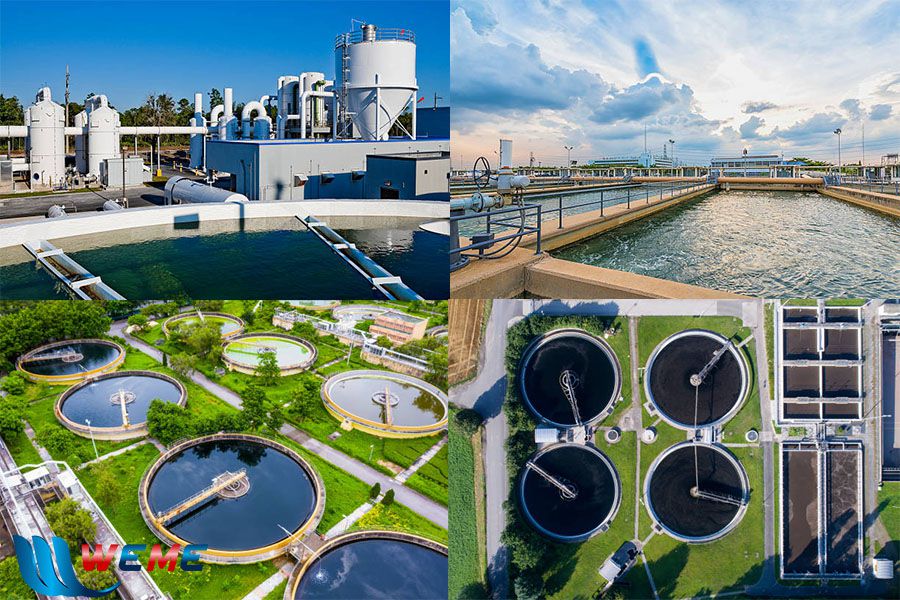
Why do we need to treat wastewater?
To better understand why wastewater needs to be treated, we will learn in detail about the consequences of wastewater if it is not treated before being discharged into the surrounding environment.
Direct impact on human health
Wastewater contains toxic pollutants, when discharged into the environment will:
- Affect groundwater and daily water sources of people. Untreated components will seep into the ground, reach groundwater and cause pollution. When people use it, they will suffer from skin diseases, conjunctivitis, diarrhea and most seriously, cancer,…
- Wastewater also contains pollutants with toxic odors, causing air pollution. Affects people’s daily life, causes unpleasant odors, long-term exposure will seriously affect health and cause some serious respiratory diseases
Great impact on the natural ecosystem
- Polluted water environment will affect living organisms in the water. Organisms are infected with diseases, carry toxins in their bodies leading to death or humans or other organisms that eat them will also be affected.
- Polluted soil and air environments will also affect living organisms in these environments. More seriously, it will cause mutations leading to the emergence of epidemics that have a great impact on humans and other organisms.
- The flora will also be seriously affected by polluted water sources, and over time the flora will gradually decrease, causing some serious consequences in terms of climate change, natural disasters, floods, droughts, etc.
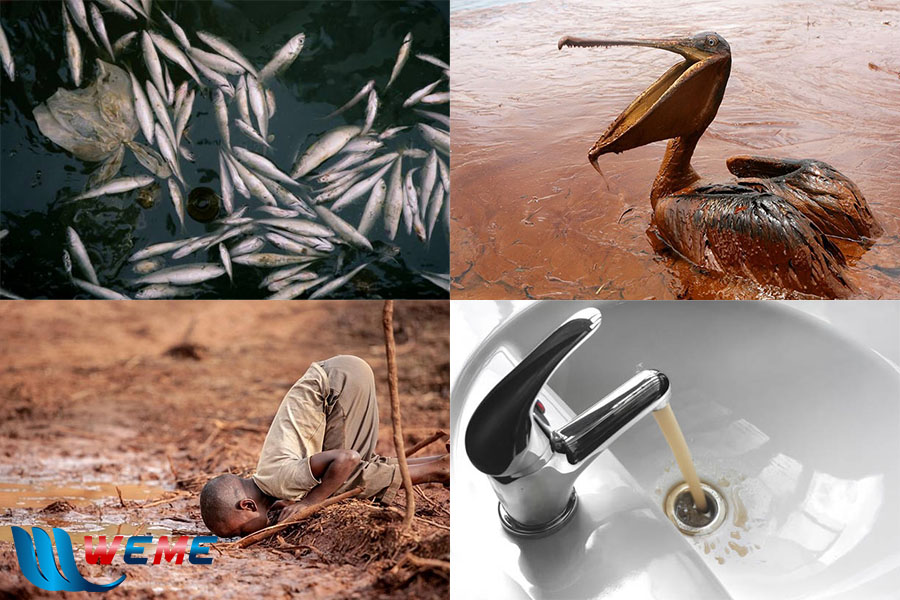
Some legal regulations on wastewater
Penalties for discharge causing environmental pollution
To protect the living environment and maintain a stable natural ecosystem, the state has issued a number of legal documents on the environment. Specifically, in cases of discharge that are not in accordance with the law, the following penalties will be imposed:
- Administrative fine: From 3,000,000 – 2,000,000,000 VND for individuals and organizations depending on the level of violation.
- Additional penalty: Suspension of the right to use licenses and certificates related to the environment for a period of time. In addition, the activities of individuals and businesses that violate the law will be suspended for a period of 1 to 24 months.
- Criminal penalties: Temporary suspension of operations for a period of 06 to 36 months or permanent suspension of operations in cases where the business discharges waste causing damage to the lives of many people, causing environmental incidents or adversely affecting security, order, and social safety and is unable to remedy the consequences.
Thus, if wastewater is not treated, it will lead to serious consequences not only for human health, the living environment, and natural ecology, but also violate state regulations; leading to loss of costs and disruption of business activities.
Wastewater standards
- QCVN 62-MT:2016/BTNMT: National technical regulation on livestock wastewater
- QCVN 11-MT:2015/BTNMT: National technical regulation on seafood processing industrial wastewater
- QCVN 01-MT:2015/BTNMT: National technical regulation on natural rubber preliminary processing wastewater
- QCVN 12-MT:2015/BTNMT: National technical regulation on pulp and paper industry wastewater
- QCVN 13-MT:2015/BTNMT: National technical regulation on textile dyeing industry wastewater
- QCVN 40:2011/BTNMT: National technical regulation on industrial wastewater
- QCVN 29:2010/BTNMT: National technical regulation on wastewater from petrol depots and stations
- QCVN 28:2010/BTNMT: National technical regulation on medical wastewater
- QCVN 09:2008/BTNMT: National technical regulation on groundwater quality
- QCVN 10:2008/BTNMT: National technical regulation on coastal seawater quality
- QCVN 11:2008/BTNMT: National technical regulation on wastewater from seafood processing industry
- QCVN 14:2008/BTNMT: National technical regulation on domestic wastewater
- QCVN 38:2011/BTNMT: National technical regulation on surface water quality for aquatic life protection
- QCVN 39:2011/BTNMT: National technical regulation on water quality for irrigation
Contact WeMe for advice
Customers interested in WeMe’s services, please leave your contact information HERE. WeMe will contact you as soon as possible to advise and answer all questions. Being with you is our pride.

